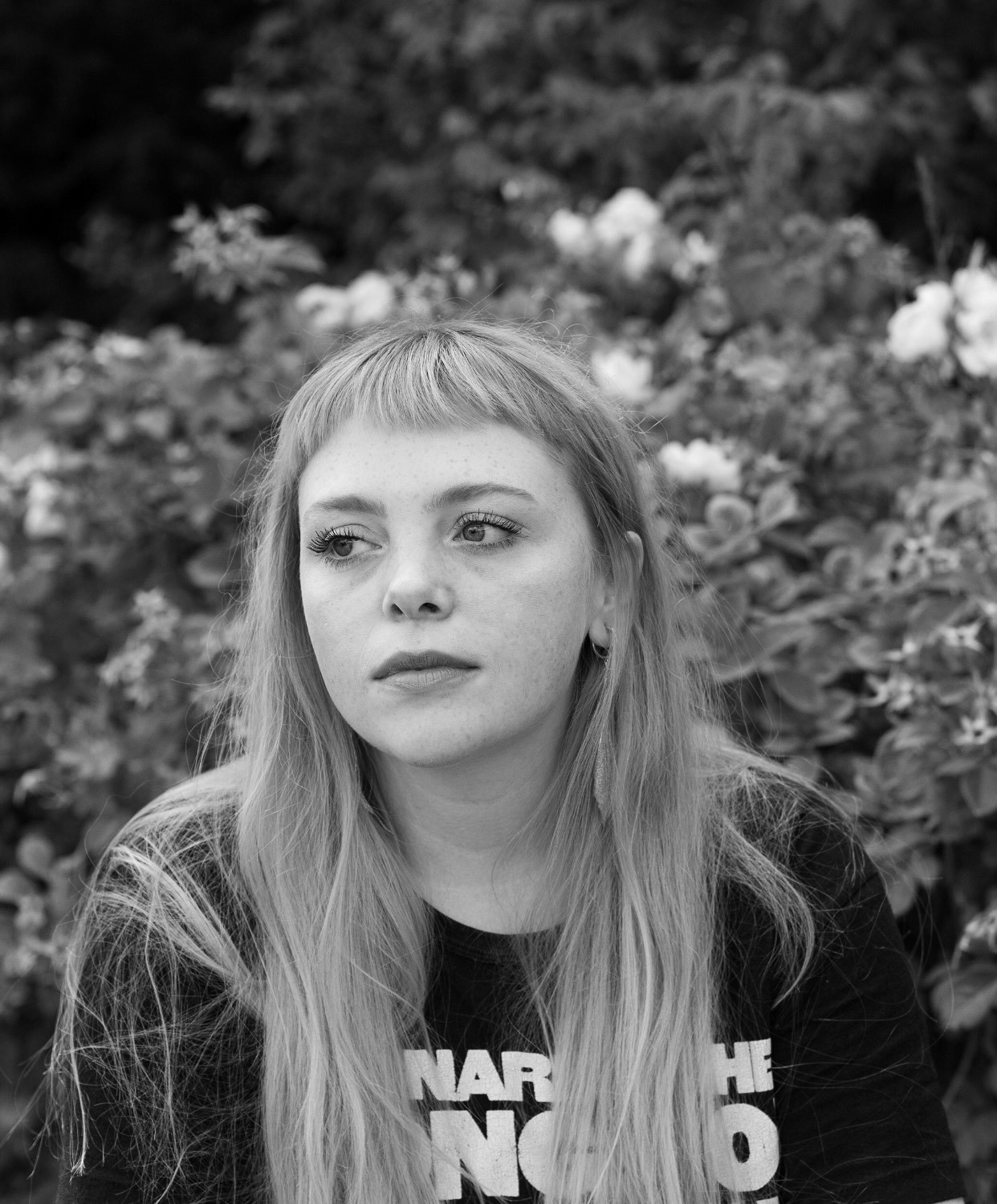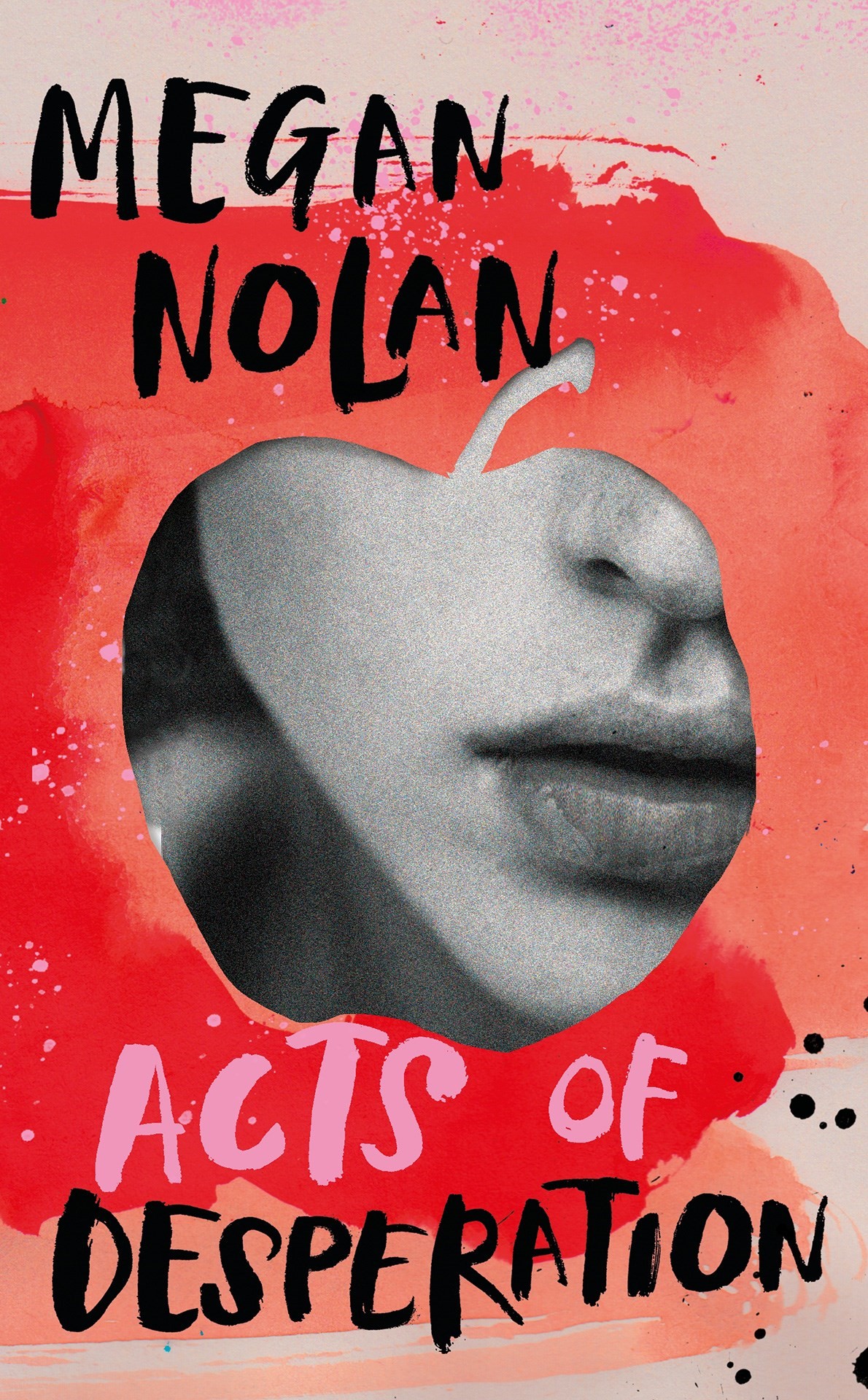It is not easy to describe Acts of Desperation, Megan Nolan’s brilliant and much-anticipated debut novel. I have seen it billed variously as a love story, an anti-love story, a millennial novel, a novel about being young, about addictive, destructive behaviour and about abuse. But like the essays and criticism for New Statesman, Observer and The New York Times for which Nolan has already gained a following, this is a story handled with a nuance that evades easy categorisation.
Told in first-person, with the main narrative interspersed with reflections from a later-day Athens, it’s a compulsive novel, like watching something burn. Early on the unnamed narrator meets Ciaran, who is beautiful, but also distant, with a propensity for capricious cruelty. After a brief breakup (he reunites with his ex-girlfriend), they move in quickly and her world contracts. What follows is a deft exploration of power, coercion and passivity, propelled by the narrator’s own concentrated desire. She labours over meals, bakes cakes, washes clothes, scrubs toilets with a kind of frenzied desperation, creating, “a lively play of domesticity too loud to hear anything over.” “If he got something out of me, I was taking something from him, too,” she tells us. “I was taking away his ability to live without me easily.”
Originally from Waterford, but based in London since 2015, Nolan weaves her autobiography through all her nonfiction writing, making it tempting to draw parallels between her life and that of the narrator. Both dropped out of university and spent their early twenties in Dublin, and Nolan spent three summers in Athens working on the book. Despite an endorsement from Karl Ove Knausgård himself though, this is not a work of autofiction, drawing on outlines – feelings and shared experiences – rather than Nolan’s life directly.
Here, the author discusses writing from experience, a resistance to naming things, and her new novel.
Holly Connolly: I think because of certain parallels between yourself and the narrator there may be some focus on how close the story is to your own life. Are you worried about people conflating the narrator with you?
Megan Nolan: I’m not really worried, exactly, it’s not my business what people choose to make of it. But how I’ve always explained it is that the narrator’s feelings, impulses and emotions are all based on me and on reality, but the events that they are then attached to in the novel are fictional. And it’s not based on an actual relationship that I’ve had, it’s based on observations of multiple different dynamics that I’ve had over the years, and that friends of mine have had over the years. So for me there’s a very clear distinction in that. I mean I understand why from the outside this wouldn’t be clear, but to me it’s a clear line between the feelings being drawn from my actual life, and then the events being fictional.
HC: How easy do you find it to write so directly from your own experience? Not in terms of actual events, but in terms of feelings? Because the feelings are in some ways so extreme, in parts it’s a very challenging book for that reason.
MN: I found it really hard to write, that’s partly why it took me quite a long time to write it, even though it’s a pretty short novel. I found that in order to write those things I had to let myself feel really intensely as I was writing it, and obviously that’s pretty draining. I couldn’t do a work day where I was writing in that way from 9am until 5pm, so I wasn’t able to have a practice that had a really sustained momentum.
I was quite glad, in a way, that it did end up taking me so long to write it, because I think if I had gotten a whole draft out when I started it, when I was 26, I wouldn’t have been that far removed from the age that I was when I was feeling these things. It was pretty useful to have those few years and have that separation of identification with the narrator. By the time I had finished it, I found it almost difficult to sympathise with some of the things I was talking about, which made it a bit better to write about them. I think when I started it was too close.
“I still wouldn’t necessarily say this is a book about an abusive relationship, because I think it’s a more complex dynamic than that for a lot of reasons” – Megan Nolan
HC: At the minute there are a lot of conversations about power, abuse and toxic relationships, and it sometimes feels that they have to be very binary; there’s a survivor or victim on one side and then there’s a perpetrator on the other. Something I loved about Acts of Desperation was that while it is about this very bad relationship, the narrator is implicated in a lot of what happens too.
MN: It was definitely really important to me, and this wasn’t an intention that I had before I started writing the story, but it was important to me not to present it as, “There is one party who is the victim, and one who is the aggressor, and that’s just how it went.” And again, none of these terms are things I would have thought about until you then have to discuss it with people. It’s not really about blame, I wanted to portray the fact that there are lots of complex conditions in relationships, whether you want to call them abusive or not. I still wouldn’t necessarily say this is a book about an abusive relationship, because I think it’s a more complex dynamic than that for a lot of reasons.
I think because I’d recognised that impulse in myself, that I was inclined to frame previous relationships as if I had been the one who was hurt in that situation, I would then be very likely to be glib about it, and dismissive of it, to portray the other person as having been bad to me. And it wouldn’t be untrue what I was saying, but it just wouldn’t be everything that happened. When I was trying to write the book I was aware of that, and that I did not want to replicate that impulse in the story.
I think within the book, and in my work in general, there’s a resistance to naming things, and to having to formalise everything. Even though I know that it’s inevitable that other people will use these terms, I didn’t want to say, “Here’s a woman, she’s an alcoholic, and she has depression, and she has an eating disorder, and she’s in an abusive relationship.” I didn’t want to have this big litany of diagnoses, because all those things are real things, but they sit within a spectrum of human experience that everyone will encounter.

HC: That’s something I really associate with your work, both your journalism and essays, this nuance and ability to let things be complicated, or not neatly resolved. I’m thinking about your writing on things like alcohol, drinking in this way that’s not necessarily healthy, and knowing that, but still continuing to drink. It doesn’t look for easy answers.
MN: I just think there’s so many things of that nature that only some people are going to totally resolve them for themselves. Only some people are going to, for instance, become sober, or have really fantastic, healthy relationships with food, or with their romantic partners, and it seems like it would be missing out on a lot of human interaction if only the people who get through the other side get to speak about it. And obviously it is quite embarrassing to talk about things like drinking until you have stopped drinking, but I think it’s our loss if we don’t do that.
HC: The novel is very open in its depictions of sex, and of female bodies too. There aren’t many precedents, I think, even currently, for this kind of openness.
MN: I always feel a bit basic making this reference, but that quote in I Love Dick by Chris Kraus, “Why does everybody think women are debasing themselves when we expose the conditions of our own debasement.” That idea was quite important to me when I started writing the book.
“I think there’s sometimes a tendency, and I’ve had this tendency as well, to, in order to promote sex positivity, to pretend that sex is only good and fun and it’s never anything else” – Megan Nolan
It was important for me to have [the narrator] enjoy sex, and to have these moments with Ciaran where she’s just totally besotted with him and their sex life. But I think there’s sometimes a tendency, and I’ve had this tendency as well, to, in order to promote sex positivity, to pretend that sex is only good and fun and it’s never anything else. And that’s not even approaching anything to do with rape or sexual assault, just in terms of it being an embarrassing situation sometimes, or a kind of gross situation sometimes.
It can be so demoralising to have these bad situations that take place because nobody can really say what they mean, or what they want, and if I think back on the flash points of my early twenties, definitely a characteristic experience was to have exciting sex maybe one week, and then the next week some really weird, sordid situation that didn’t feel quite right but I was embarrassed to speak about to my friends. So I did want to capture that confusion, definitely.
HC: You signed a two-book deal with your publisher Jonathan Cape. Can you talk about the second book?
MN: It’s totally different. Where Acts of Desperation is basically one person’s interior monologue and experience of the world, this is trying to move quite far away from that, it has more of an expansive story, and more of a world, than Acts does. I’m still working out some of the details at the moment, but it centres around a very scandalous crime that takes over the media, and the novel is set inside a newspaper, and also the crime itself. It came from this anecdote that I read in a Gordon Burn book about Peter Sutcliffe, which mentions in passing that a newspaper had put up a bunch of his acquaintances and family members in a hotel, in advance of the trial, to try and keep them on tap as a source. I thought, “God, imagine what that hotel must have been like!” So this was based on that idea.
